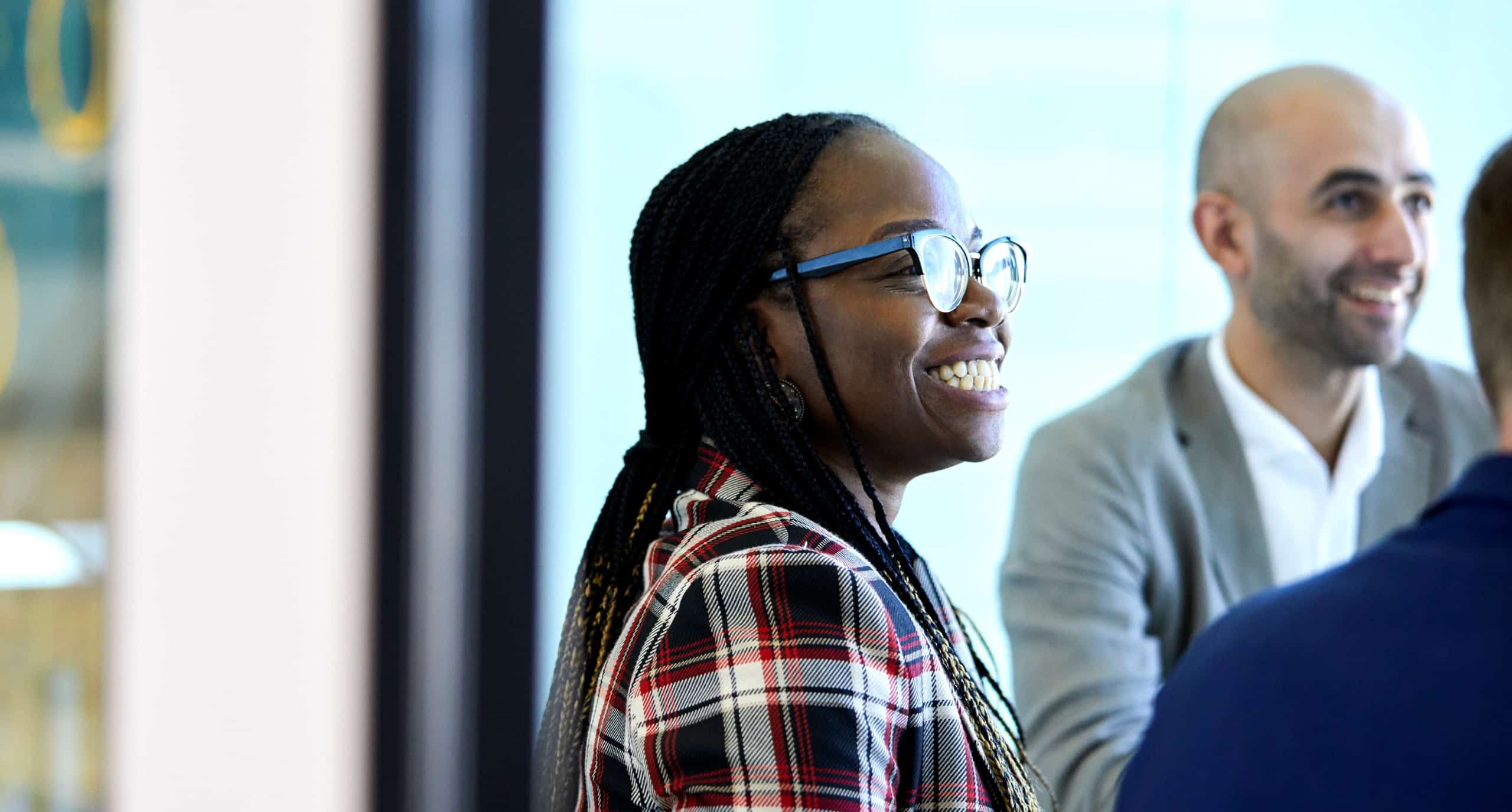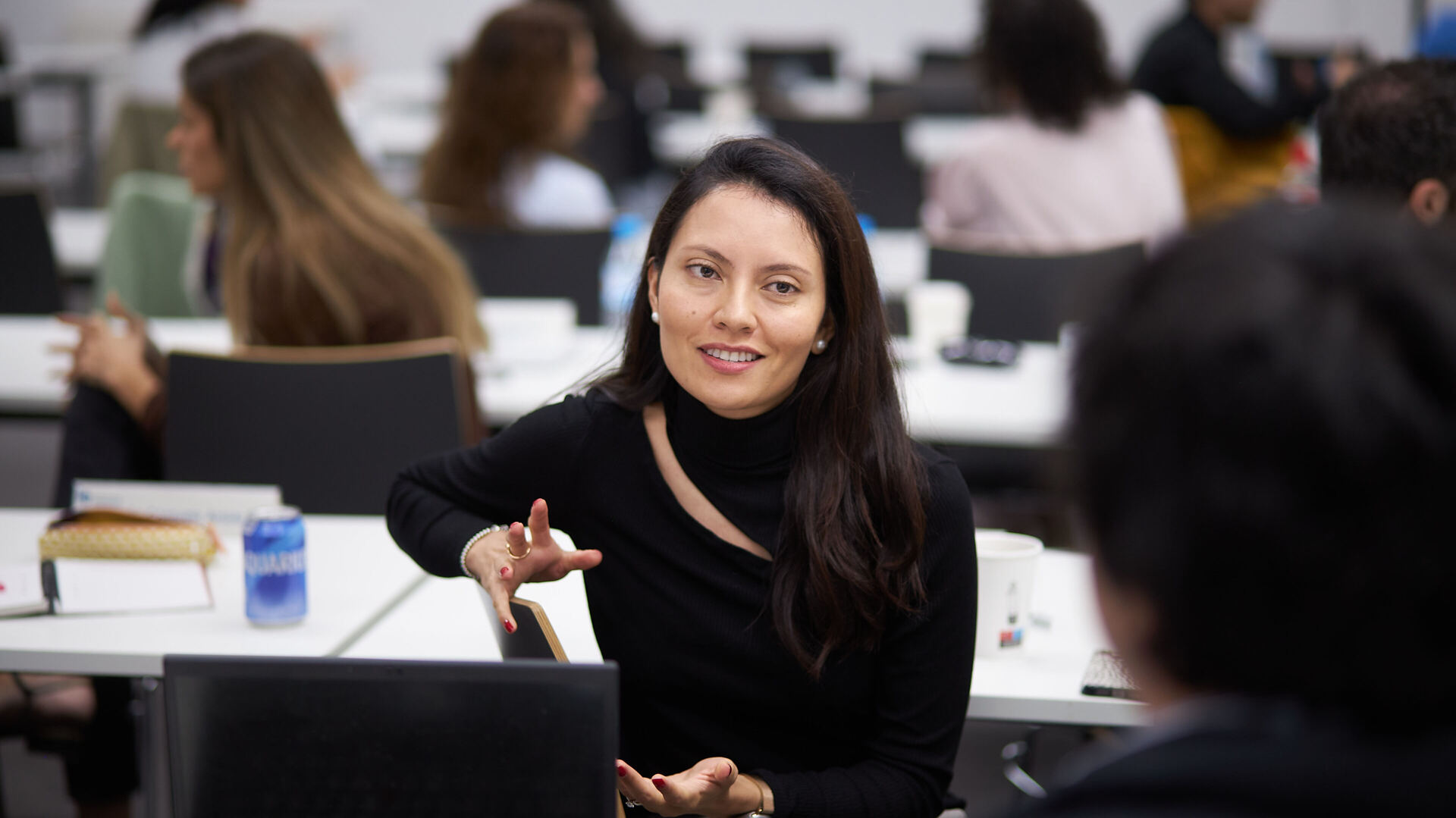10/06/2024
In recognition of one of IE University’s core values—diversity—IE School of Architecture & Design recently hosted the event Real Estate with Inclusive Design: Trailblazing the Future.
Attendees of IE University’s recent inclusive design event got an inside look at the future of diversity, equity and inclusion (DEI) in the world of design, through an insightful panel between Ana Gorriti, Director and DEI Standard Lead at JLL, and Cristina Mateo, Associate Dean at IE School of Architecture & Design. The discussion delved into the critical role of inclusive design in real estate, exploring how this approach is pivotal in creating spaces that are not only functional but truly welcoming for all users.
Diversity at the heart of IE University
At IE University, diversity stands as a cornerstone of our educational ethos. With a commitment to fostering an environment of curiosity, inclusion and understanding, we welcome students, professors and staff from over 160 countries. Each individual contributes unique life experiences, backgrounds and perspectives, enriching our community and cultivating global citizens poised to effect positive change.
Diversity also holds a pivotal role in today’s workplaces. According to Glassdoor statistics, three-quarters of employees prefer to work in an inclusive workplace. Diverse teams consistently outshine their less inclusive counterparts, demonstrating the tangible benefits of varied perspectives and experiences. Furthermore, inclusive workplaces boast higher employee retention, highlighting the substantial impact of an accepting and supportive work environment.
Aside from the competitive advantage of diverse teams, the need for inclusivity in all spaces is becoming more obvious every day. People from minority ethnic groups, gender identities or sexual orientations still face regular discrimination. The World Health Organization notes that 15% of the global population grapples with some form of physical disability, underscoring the need for accessibility. Additionally, it’s estimated that by 2030, a quarter of the workforce will be over the age of 55, highlighting the necessity to create age-inclusive workplaces.
Diving into inclusive design
Inclusive design goes beyond mere physical accessibility, such as wheelchair access and sensory adaptations. It encompasses a broader spectrum, aiming to make spaces universally usable and welcoming regardless of age, race, gender, orientation or ability. As Ana explained in her conversation with Cristina,
One of the main goals of inclusive design is eliminating barriers, going beyond standard requirements to make spaces and services relevant to the widest range of users.
The conversation at the event highlighted the growing visibility of DEI in the future of design. “We as architects have an amazing opportunity to take this forward and really have an impact on society,” Ana emphasized. This sentiment captures the essence of what inclusive design in real estate aims to achieve—spaces that are not only accessible but equitable, creating a positive impact on society as a whole.
As the industry evolves, the focus on inclusive design is expected to intensify, with architects and developers increasingly held accountable for creating environments that reflect the diversity of society. As Ana mentioned, “Fortunately, what we are seeing more and more is that users are requesting what they need,” making it easier to understand and accommodate the needs of diverse users. The shift towards inclusive design is not just about compliance with regulations but about leading a change towards more empathetic and socially responsible architecture.
Going beyond the classroom
IE University’s Masters in Real Estate Development programs play a crucial role in preparing the next generation of real estate professionals. These programs offer a holistic view of the real estate development process, focusing on economic, financial, strategic and legal aspects. As urbanization speeds up and societal challenges like global warming become more urgent, these programs equip students with the latest knowledge and innovative tools needed to lead in the future.
This event exemplified how IE University continuously integrates expert insights into its curriculum, ensuring students are well-prepared to tackle real-world problems with innovative solutions. By bridging expert insights with comprehensive education, IE University is setting the stage for a future where real estate development is inherently inclusive, beneficial and impactful. As the industry continues to evolve, the principles discussed in this event will guide the creation of spaces that truly meet the needs of all users, paving the way for a more inclusive world.








